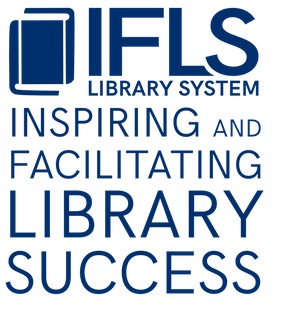Christinna Swearingen from the Rusk County Community Library in Ladysmith received a scholarship to attend the Rural Summit in Anchorage, Alaska. The scholarship covered the conference, but not travel costs, and IFLS was able to assist with those costs thanks to an LSTA grant from the Wisconsin Department of Public Instruction’s Bureau of Libraries, with funding from the Institute for Museum and Library Services. Here’s an interview with her about her experience there!
What made you decide to attend the Rural Summit? Can you tell us a little bit about the purpose of the Summit and the organization(s) that put it together?
I decided to attend the Rural Summit when Dr. Regina Washington, the Director of Rural Impact Networks and Managing Director of Rural Library Network for Partners for Rural Impact (say that three times out loud!) contacted me and asked if I would be interested in coming to the summit on a scholarship. I’ve attended several of the Rural Library eSummits and other webinars that they had put on and was familiar with Partners for Rural Impact. I’ve also worked on different committees and have participated in projects all over the place for assorted library-related things and Dr. Washington recognized my name and wanted me to come to the Rural Summit. The library world is a lot smaller than you realize!
The Rural Summit is organized and put on by Partners for Rural Impact, a nonprofit that was founded primarily to support cradle-to-career success in Appalachia, but they’ve managed to continue to expand since their inception in 2011. The purpose is to get any and all educators/librarians/nonprofits/probably some for-profits that are dedicated to finding ways to connect with other organizations and to work together to promote success in all ages of people, starting from when they are born and beyond. Just like any conference it had programs upon programs but with the idea that no matter where you were from and what you did, you had a heart to help humanity and were there to learn how to continue this great and underpaid work.
If you had to sum up the experience you had at the Rural Summit in 6 words, what would they be?
Fun, tiresome, interesting, welcoming, invigorating and thought-provoking.
What was one takeaway you are still thinking about from the summit?
I attended a program about using data and data dashboards to tell stories about communities and help to shape outreach. I’m intrigued to do more of that. I think that librarians do a great job with the statistics that we have to make cases for funding, staff, etc. but we don’t often jump in with broader datasets outside of the Library and highlighting the community. This is something that I am interested in learning more about, perhaps in cooperation with the City of Ladysmith.
Have you made any changes or started doing anything new (or stopped doing anything) as a result of your experience at the Summit? Can you describe one of them?
There was a powerful session done by Native youth in Alaska and it has really stuck with me. Not only because they talked about the impact of organizations throughout their lives but also because they asked that organizations don’t forget them when they are older. They spoke about how they have so much institutional support as children and teenagers but lose all of that when they leave high school and are on the fringes as adults in the world. Their plea was that they continue to be taught and supported as they continue to grow older as this was when they saw a lot of their elders appear lost and rudderless in a cruel world. This really made me think about how libraries can and do serve patrons of all ages, but that we can still make more of an effort to truly connect with our communities-at-large and offer them support throughout their lives and not just because they are patrons at our library. I think we can sometimes pinhole ourselves in the library world to thinking that we should promote the library specifically but without remembering that there is also a community beyond our walls that we can support and offer help. My outlook on programming, outreach, and even how the library is physically set up is shifted. I think that the status quo is nice but who are we isolating when we refuse to implement change in our libraries and “roll with the flow”? What processes can we change to make sure that we are inclusive and that we aren’t just attracting people who already frequent libraries? I’m trying to get better at thinking beyond the library walls but am still, admittedly, a work in progress.
What is your favorite part of a non-librarian conference? What was hardest about it?
My favorite part was learning about other organizations that are not libraries but still doing work that can mimic what we do—form connections, educate, provide resources and so on. There were also no vendors there, which was a weird change from a library conference but actually was nice in a way because you could totally focus on learning. The hardest part about it was not seeing all of my Wisconsin library friends…I made other librarian friends throughout the week as we all seem to have a radar for each other. PRI also made sure to organize a rural librarian social agenda that was an absolute blast. However, I might be biased but the best librarians come from Wisconsin!
